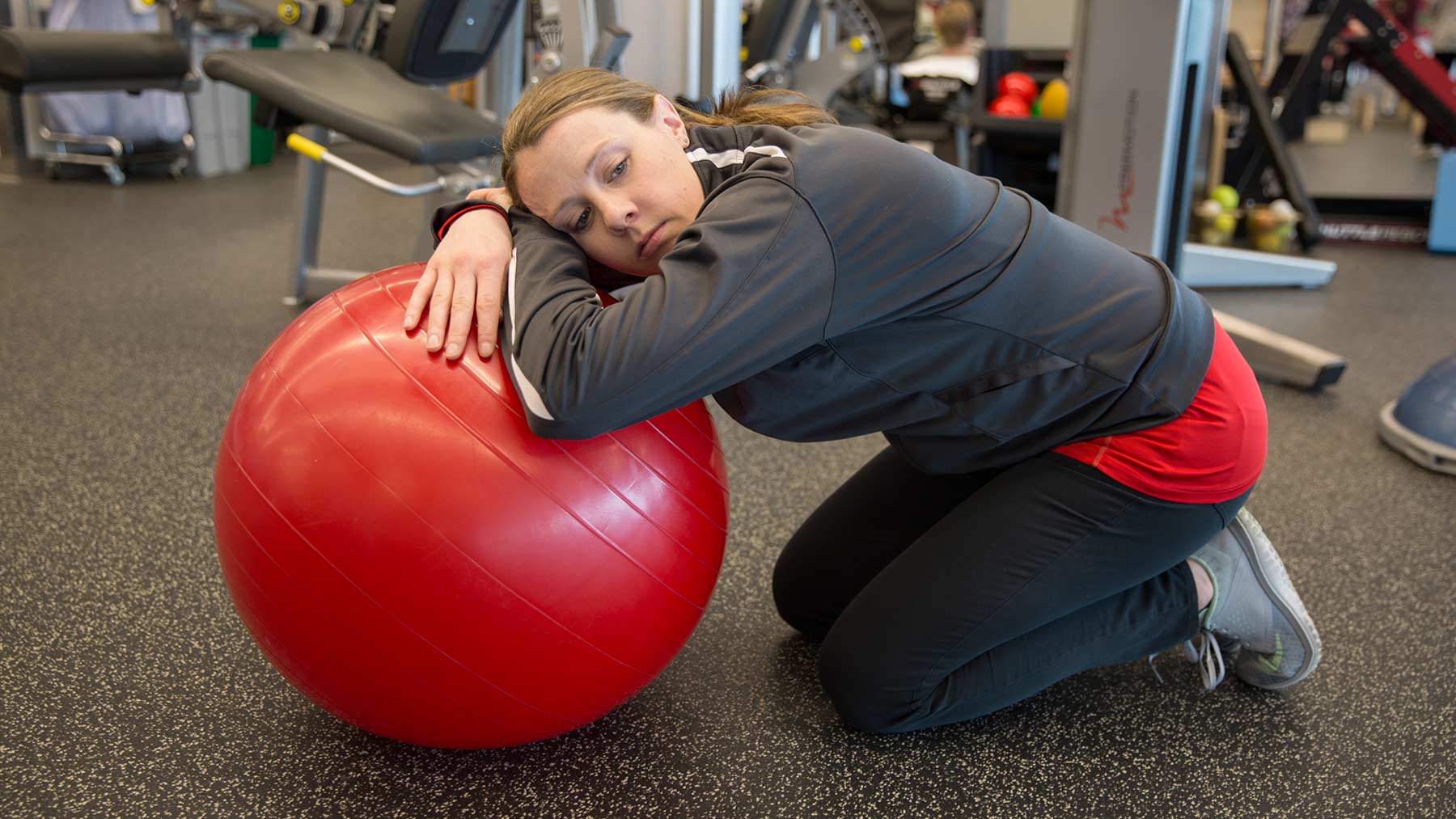Sleep vs. exercise: Which takes priority?
 Sleep and exercise. People often say there’s not time in their busy lives to get both every day. So, which one should take the back seat? From a sports medicine physician’s perspective, I say both have to sit up front. The two are inseparable, and you can’t train effectively without both.
Sleep and exercise. People often say there’s not time in their busy lives to get both every day. So, which one should take the back seat? From a sports medicine physician’s perspective, I say both have to sit up front. The two are inseparable, and you can’t train effectively without both.I’m guilty of sacrificing one or the other, probably too regularly. I wake up at 6:30 a.m. to play basketball on Saturday mornings when I know my body could use the extra sleep after a busy workweek. But I love it, and I make the cardiovascular workout I get from basketball a priority.
I’m also very aware when my body is unrested. I feel low energy and low motivation, and my focus is nowhere to be found.
I’ve learned to listen to these symptoms and take them as a sign that my body isn’t ready to take the load. Training requires stress to the body – it literally breaks down muscles and tendons. For the body to not only recover, but to come back stronger after the stress, it requires rest – and actual sleep, as recent studies show athletes risk double the rate of injury if they average less than 8 hours of sleep per night.
Let’s take a look at the most common questions people have about balancing sleep and exercise.
How many hours of sleep per night do I need?
The American Academy of Sleep Medicine and Sleep Research Society specify that adults ages 18 to 60 should sleep seven or more hours per night on a regular basis for optimal health. It should be noted that infants, children and teenagers require substantially more sleep than adults.
How many minutes of exercise per day do I need?
The American College of Sports Medicine recommends adults get at least 150 minutes of moderate-intensity exercise per week. Exercise recommendations can be met through 30-60 minutes of moderate-intensity exercise five days per week, or 20-60 minutes of vigorous-intensity exercise three days per week.
What are the consequences of too little sleep?
Sleeping less than six hours per day can have both short- and long-term dilatory effects. Recent studies support what we’ve all likely experienced in our lives: Acute sleep deprivation may result in decline in cognitive performance, alertness and mood, and even your ability to carry out complex physical tasks.
Other symptoms include delayed reaction time, decreased memory and concentration, and decreased response of the body’s sympathetic nervous system, which is important for peak performance. All have been associated with poor sleep patterns and affect how athletes train. Chronic sleep deprivation has even been linked to increased rates of heart disease, infections, inflammation and obesity.
What are some health consequences of too little exercise?
Interestingly, some of the chronic consequences of inactivity are quite similar to lack of sleep. These are well documented.
Is there a way to prioritize exercise into the schedule of a well-rested, working parent?
Many of us struggle with the balance of exercise, rest and family responsibilities. I’ve found several things that can set you up for success with your exercise program:
- Communicate and protect time. Pick a time when you know your demand is low. It might be early in the morning before work or just prior to returning home. I’ve found that going home after a long day only to try to leave again for the gym increases the likelihood that I’ll just stay home.
- Pick your location. Find a gym close to work. I find this even better than a gym closer to home. The longer you sit in the car, the more your motivation fades and the allure of home calls you. Alternatively, I’ve adopted a workout program that is conducive to my home. This way I can take away the time of gym travel and am available in a pinch to the family.
- Involve your family. Newsflash: Kids like to exercise. My 3-year-old laughs as I try to keep up with home workout videos or yoga poses, but then she imitates me. If your kids are younger, invest in jogging strollers or bike chariots. Or better yet, a babysitter. There’s no problem with using two hours for a babysitter for a “day date” with your spouse to exercise. Many large gyms actually provide fairly cheap daycare, so you might want to try that route.
So, what’s the verdict – Sleep or exercise?
Obviously, it must be a balance. Both sleep and exercise are vital to a happy and healthy lifestyle.
Dr. Michael Jonesco, assistant clinical professor of internal medicine and sports medicine at The Ohio State University Wexner Medical Center, is trained in a wide range of traditional treatment modalities, as well as joint and soft tissue injections, concussion management and osteopathic manipulation. Learn more about his care philosophy.




